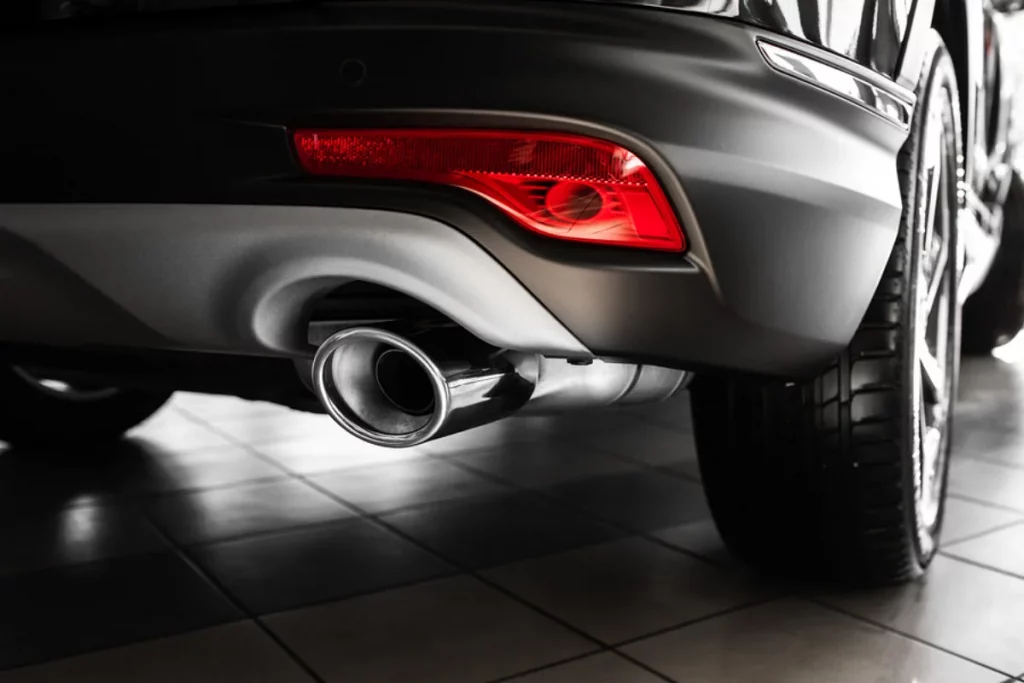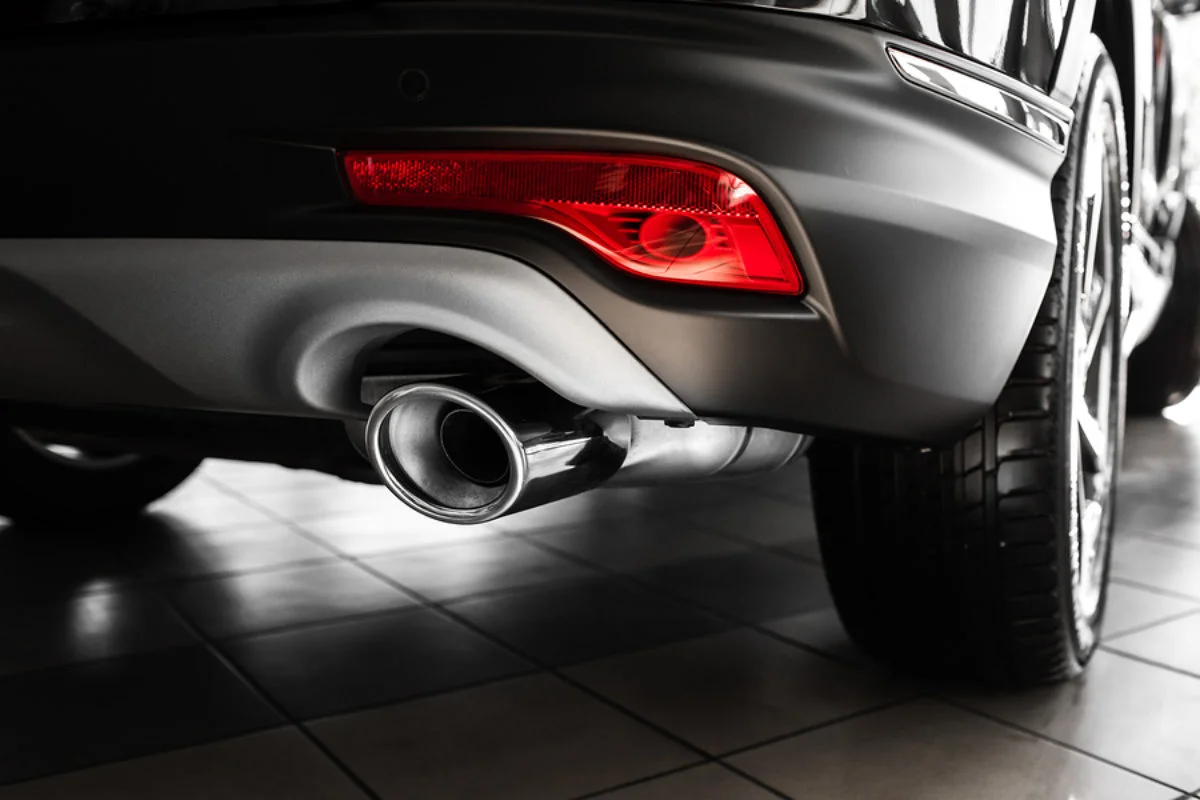
The exhaust system in your car is like a set of pipes, connectors, sensors, and mechanical components that are interconnected in such a way that work together to safely remove the hot and harmful gases produced by your engine.
Think of it as your car’s “breathing” system. It helps your engine run smoothly and keeps you safe by directing those gases away from the inside of your vehicle.
In this blog post, we’ll explore these aspects, answer common questions, and provide valuable insights.
What is an Exhaust Leak?
Now, imagine there’s a tiny hole or crack in those pipes or parts of the exhaust system. This hole allows some of those hot and harmful gases, like the ones that make your car go “vroom,” to escape where they shouldn’t. That’s what we call an “exhaust leak.”
It’s like having a small opening in a balloon – the air (or gases, in this case) doesn’t stay where it’s supposed to.
Symptoms of Exhaust Leak
Identifying an exhaust leak early can prevent further damage. Common symptoms include:
1) Increased engine noise: A sudden, noticeable increase in engine noise, especially during acceleration.
2) Hissing or popping sounds: Unusual hissing or popping sounds coming from the exhaust system.
3) Reduced fuel efficiency: A drop in gas mileage due to decreased engine efficiency.
4) Foul odors: The presence of noxious fumes like carbon monoxide inside the cabin.
5) Vibrations: Vibrations in the steering wheel or gas pedal, signal an issue with the exhaust system.
Causes of Exhaust Leaks
Exhaust leaks can be caused by various factors, including:
1) Corrosion: Over time, the exhaust system may corrode, leading to holes or cracks.
2) Damaged components: Wear and tear on gaskets, seals, or exhaust pipes can result in leaks.
3) Impact damage: Accidents or collisions can dent or damage exhaust components.
4) Rust: Rust can eat away at exhaust pipes and mufflers, creating weak points.
5) Poor installation: Improperly installed exhaust components can lead to leaks.
FAQs:
a) Can you drive a car with an exhaust leak?
It’s not advisable to drive with an exhaust leak. Besides increased noise and decreased fuel efficiency, exhaust leaks can allow toxic gases like carbon monoxide to enter your vehicle’s cabin, posing a serious health risk.
b) Is an exhaust leak expensive to fix?
The cost of fixing an exhaust leak can vary depending on the extent of the damage and the specific components needing replacement. However, addressing the issue early can often prevent more extensive and expensive repairs down the road.
c) Is an exhaust leak in a car dangerous?
Yes, an exhaust leak can be dangerous. The escaping gases, including carbon monoxide, can be harmful when inhaled. Additionally, a damaged exhaust system can negatively affect your vehicle’s performance and fuel efficiency, compromising your safety on the road.
Get Exhaust Leak Repaired Now!
If you suspect an exhaust leak in your car or have noticed any of the symptoms mentioned above, it’s time to act! Ignoring this issue can be dangerous and costly.
Contact a professional mechanic to inspect and repair your exhaust system promptly.
Don’t wait – Take action now to safeguard your vehicle, your wallet, and your well-being!
